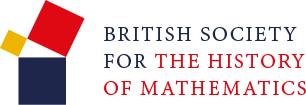Conflicting Attitudes in the History of Mathematical Science
Conflicting Attitudes in the History of Mathematical Science
This minisymposium is part of the British Applied Mathematics Colloquium. The precise day and time will be confirmed as soon as possible.
Focusing on the history of applied mathematics, the minisymposium will examine four case studies of the interface between mathematical science and other disciplines in the past.
The following have agreed to speak:
Professor Alex Craik (St Andrews): The hydrostatics of George Sinclair and Robert Boyle.
This case exposes the conflict between mathematical theorems and "experimental philosophy" in the late 17th century.
Dr Ben Marsden (Aberdeen): William John Maquorne Rankine.
This talk examines the interface between mathematics and engineering in the mid nineteenth century.
Dr Mark McCartney (Ulster): ‘Graecum est legi non potest’: James Thomson Snr and the teaching of arithmetic, trigonometry and calculus in early 19th century Belfast.
James Thomson Sr, father of Lord Kelvin, was both school teacher and college professor of Mathematics in Belfast from 1814/5-1832. During his time in the town he wrote a number of textbooks, and these, combined with correspondence and examination questions allow us to use them as a case study in the teaching of mathematics in the early 19th century.
Dr Isobel Falconer (St Andrews): Maxwell, Kelvin, and the inverse square law of electrostatics.
This talk explores Maxwell and Kelvin's exploitation of Cavendish's inverse square law experiment to generate an apparently rigorous mathematical foundation for electrical science, as well as a British genealogy for it.
